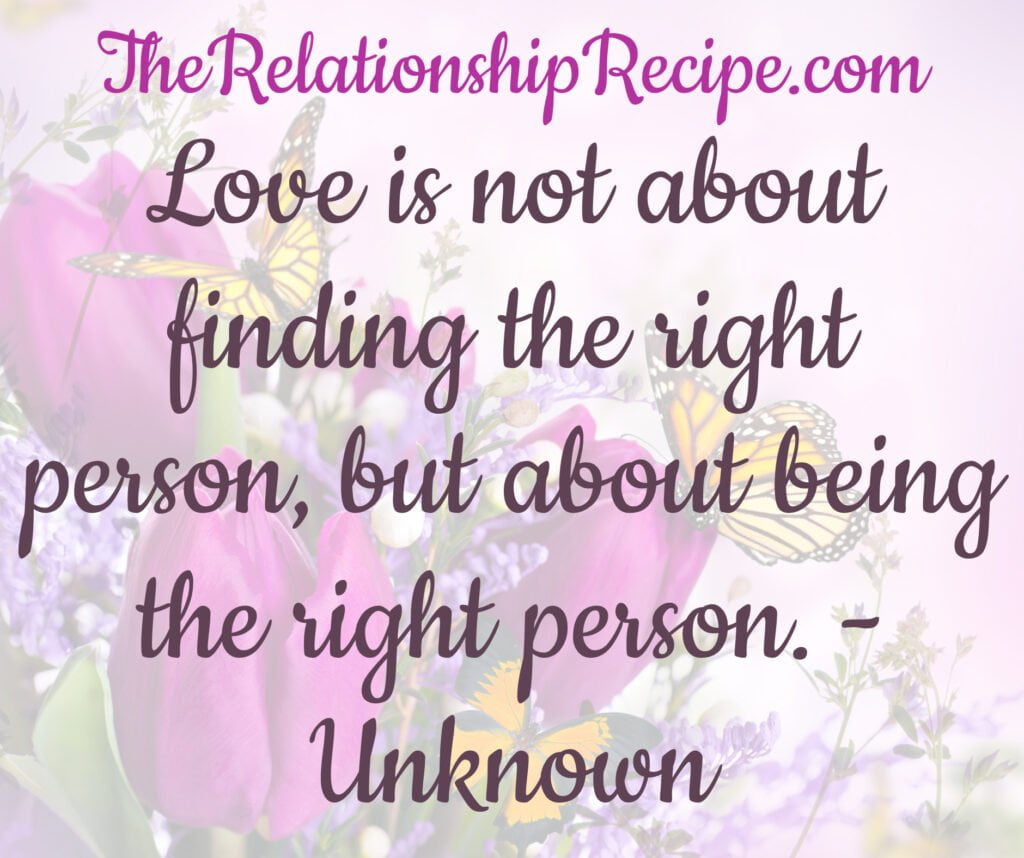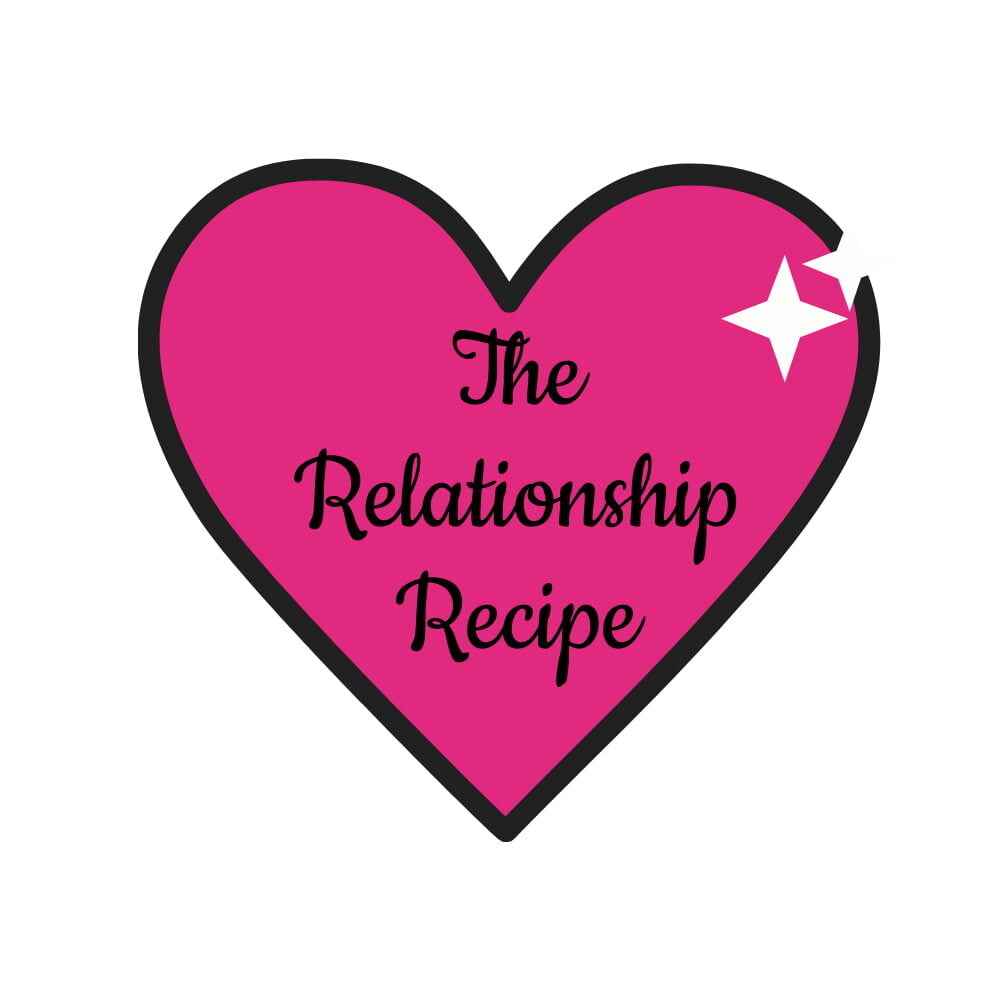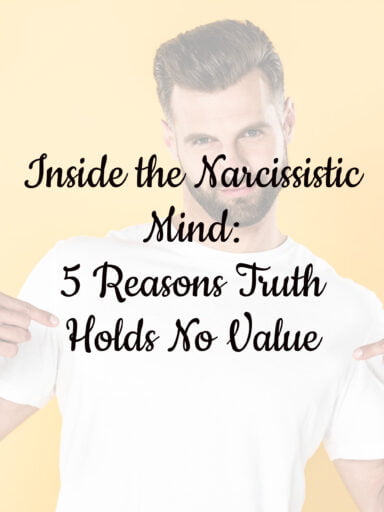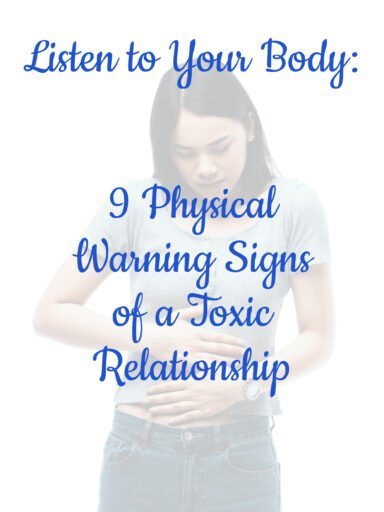Are you exhibiting any of these 15 signs that indicate you’re not be ready for a relationship? Find out if you’re truly prepared for a healthy and fulfilling romantic connection.
Romantic affection acts as a potent elixir, enchanting and compelling. It conjures images of fluttering butterflies, dazzling fireworks, soft-spoken pledges, and shared aspirations. However, beneath this glittering facade of infatuation often lies a stark truth: you might not be adequately prepared for a romantic commitment.

Plunging into a serious partnership prematurely can resemble navigating an emotional minefield, potentially resulting in heartbreak, resentment, and a stark departure from the fairy tale ideal. Hence, before taking the leap, it’s imperative to pause, draw a deep breath, and pose a pivotal question to oneself: Am I authentically primed for love?
15 Signs That You Are Not Ready for a Relationship
- Unresolved Past Trauma:
Lingering emotional wounds, whether stemming from recent heartbreaks or childhood scars, possess the propensity to infiltrate and tarnish a budding romance, potentially giving rise to possessiveness, jealousy, or an inability to trust fully.
Moreover, unresolved past trauma can act as a formidable barrier to the development of a healthy and fulfilling relationship. These emotional wounds, whether inflicted by recent heartbreaks or lingering scars from childhood experiences, have a profound impact on one’s emotional landscape.
When unresolved, these traumas can manifest in various detrimental ways within a romantic connection. The scars of past heartbreaks may breed a sense of insecurity and fear of abandonment, leading to possessiveness and clinginess. Similarly, childhood traumas such as neglect or abuse can instill deep-seated issues with trust and intimacy, making it challenging to fully open up to a new partner.
Furthermore, the unhealed wounds from previous relationships can create a pattern of projecting past hurts onto current partners, unfairly attributing intentions or behaviors that may not be present. This can lead to misunderstandings, conflicts, and ultimately, the erosion of trust and intimacy within the relationship.
In order to cultivate a healthy and thriving partnership, it is essential to address and heal from past traumas. This may involve seeking therapy or counseling to process and release the emotional burdens carried from past experiences. By doing the inner work necessary to heal, individuals can free themselves from the shackles of the past and create space for a relationship grounded in trust, vulnerability, and mutual respect.

2. Validation Cravings
Do you find yourself incessantly seeking affirmation, particularly in romantic contexts? Relying excessively on external validation may pave the way for unhealthy codependency, rendering one susceptible to manipulation.
Validation cravings, can signify a deeper issue rooted in one’s sense of self-worth and identity. When individuals constantly seek affirmation from others, particularly from their romantic partners, it can indicate a reliance on external sources to validate their own value and significance.
This incessant need for validation can stem from various underlying factors, such as low self-esteem, unresolved childhood issues, or past experiences of rejection or abandonment. Individuals may believe that their worth is contingent upon the approval and admiration of others, leading to a perpetual cycle of seeking validation to fill an internal void.
However, relying excessively on external validation sets the stage for unhealthy dynamics within relationships. It can create a dynamic of codependency, where one’s sense of self is intertwined with their partner’s perception of them. This dependency on external validation for self-worth can make individuals vulnerable to manipulation, as they may prioritize pleasing their partner over asserting their own needs and boundaries.
Moreover, the constant craving for validation can strain the relationship, as it places undue pressure on the partner to constantly affirm and validate the other’s worth. This imbalance of power can lead to resentment and dissatisfaction, as the relationship becomes centered around meeting the validation needs of one partner at the expense of the other’s emotional well-being.
To break free from the cycle of validation cravings, you must cultivate a sense of self-worth and self-validation from within. This involves introspection, self-reflection, and nurturing a positive self-image based on internal qualities and values rather than external approval. By building a strong sense of self-esteem and self-confidence, you can reduce your dependency on external validation and foster healthier, more balanced relationships built on mutual respect and genuine connection.

3. Fear of Solitude:
The fear of solitude is a common experience for many of us, often stemming from a discomfort with being alone or a deep-seated fear of loneliness. While it’s natural to crave companionship and connection with others, using a relationship as a means to escape from feelings of loneliness can ultimately lead to dissatisfaction and disillusionment.
When individuals enter into relationships primarily to alleviate their fear of being alone, they may overlook important aspects of compatibility and emotional compatibility. This can result in settling for a relationship that doesn’t fully meet their needs or align with their values, leading to feelings of emptiness and unfulfillment over time.
Moreover, relying on a partner to fill the void of loneliness can place undue pressure on the relationship and the partner themselves. It’s unfair to expect one person to fulfill all of our emotional needs and provide constant companionship, as this can lead to feelings of suffocation and resentment in the long run.
Instead of seeking refuge from loneliness in a relationship, it’s essential to cultivate self-sufficiency and nurture personal interests and hobbies. Building a fulfilling solo existence not only enhances one’s sense of independence and self-esteem but also enriches their life outside of the relationship.
By investing in activities and pursuits that bring joy and fulfillment independently, individuals can develop a stronger sense of self and reduce their dependence on external sources of validation and companionship. This, in turn, allows for more balanced and mutually satisfying relationships built on genuine connection and shared values, rather than a fear of being alone.

4. Unclear Life Goals
Uncertainty regarding one’s life goals and aspirations can significantly impact the dynamics of a romantic relationship. When individuals lack clarity about their professional trajectory, life purpose, or overarching priorities, it can create a sense of ambiguity and instability within the partnership.
In such cases, we may find ourselves at crossroads, unsure of which path to pursue or how to align goals with those of their partner. This ambiguity can lead to feelings of frustration, resentment, and a lack of direction within the relationship.
Furthermore, when people are uncertain about their own aspirations, they may inadvertently project their insecurities onto their partner or feel envious of their partner’s clarity and purpose. This can create tension and discord within the relationship, as both partners struggle to find common ground and support each other’s growth and development.
It’s essential for us to take the time to clarify our own life goals and priorities before intertwining their journey with another person. This involves introspection, self-reflection, and a willingness to explore different avenues and possibilities.
By gaining a better understanding of their own aspirations, individuals can communicate their needs and desires more effectively within the relationship. They can also provide support and encouragement to their partner as they navigate their own journey of self-discovery and growth.
Moreover, having clarity about one’s life goals can help individuals make more informed decisions about their relationship and whether it aligns with their long-term aspirations. It can also provide a sense of stability and purpose within the relationship, as both partners work towards common goals and support each other’s individual growth and development.

5. Emotional Unavailability
At its core, emotional unavailability can manifest in various forms. Some may struggle to express their emotions openly, preferring to keep their feelings guarded or hidden. Others may find it challenging to empathize with their partner’s emotions, leading to a lack of emotional support and understanding.
In some cases, emotional unavailability may stem from past traumas or unresolved issues that make it difficult for you to trust and connect with others on a deeper level. This can result in a pattern of emotional distancing or detachment, where we may avoid vulnerability and intimacy as a means of self-protection.
Therapy or counseling can be invaluable tools in this process, providing you with a safe space to explore their emotions, learn healthy coping strategies, and develop the skills necessary for building and maintaining meaningful relationships.
Moreover, both partners must be willing to communicate openly and honestly about their feelings and needs within the relationship. This may involve setting boundaries, practicing active listening, and cultivating empathy and understanding for each other’s emotional experiences.

6. Identity Exploration
Identity exploration is a fundamental aspect of personal growth and development, yet it can also greatly impact the dynamics of romantic partnerships. When we are constantly reinventing ourselves or lack a solid sense of self-awareness, it can pose significant challenges to building and maintaining healthy relationships.
Constant self-reinvention can stem from a variety of factors, such as a desire for novelty, fear of stagnation, or a lack of confidence in one’s current identity. While change and growth are essential components of life, excessive self-reinvention can lead to instability and inconsistency in how one presents themselves within a relationship.
Moreover, a lack of self-awareness can hinder individuals’ ability to navigate the complexities of partnership effectively. Without a clear understanding of their own values, beliefs, and boundaries, individuals may struggle to communicate their needs and desires to their partner. This can lead to misunderstandings, conflicts, and a lack of intimacy within the relationship.
Furthermore, solidifying one’s sense of self allows individuals to enter into partnerships from a place of strength and stability. They are better equipped to set boundaries, communicate effectively, and navigate challenges with confidence and grace. This, in turn, fosters a more secure and fulfilling bond with their partner, built on mutual respect, understanding, and support.

7. Drama Over Stability
Choosing drama over stability in a romantic relationship can lead to a rollercoaster of emotions, but it often comes at the expense of long-term happiness and fulfillment. While the excitement and intensity of drama may initially seem exhilarating, prioritizing tumultuous dynamics over stability can perpetuate an unsustainable cycle of chaos and uncertainty.
Many of us might not know any different if chaos was was normal in your household while growing up. We get addicted to the highs and lows, the constant push and pull, in chaotic, drama-filled relationships.
When we prioritize drama in our relationships, we may find ourselves constantly seeking out conflict, excitement, or intensity as a way to feel alive or validated. This can manifest in arguments, power struggles, or emotional highs and lows that keep the relationship in a constant state of turmoil.
However, this cycle of drama can take a toll on both partners, leading to emotional exhaustion, resentment, and a lack of trust. It can also prevent the relationship from reaching its full potential, as partners may struggle to communicate effectively, resolve conflicts, or build a foundation of mutual respect and understanding.
A stable relationship provides a safe space for growth and exploration, allowing partners to navigate life’s challenges together with confidence and resilience. It creates open communication, mutual respect, and a sense of shared purpose, strengthening the foundation of the relationship and deepening the emotional connection between partners.

8. Commitment Reluctance
Commitment reluctance, fueled by fear, can cast a shadow over the potential for genuine intimacy and connection in a romantic relationship. When you shy away from commitment due to apprehension or past experiences, it erects barriers that impede the growth of a deep and meaningful bond.
At the core of commitment reluctance often lies a fear of vulnerability and uncertainty about the future. Individuals may harbor concerns about being hurt or rejected, leading them to instinctively retreat from the prospect of committing fully to a partner. This fear can manifest in various ways, such as avoiding labels, resisting exclusivity, or maintaining emotional distance.
However, by succumbing to commitment reluctance, we risk depriving ourselves of the opportunity to experience the richness of true intimacy and connection. Genuine intimacy flourishes in an environment of trust and mutual vulnerability, where partners are willing to share their fears, hopes, and dreams openly.
Furthermore, cultivating healthy communication skills is essential in navigating commitment-related discussions with a partner. Open and honest communication allows individuals to express their concerns, fears, and desires, while also creating space for their partner to do the same. It creates understanding, empathy, and mutual support, laying the groundwork for a more secure and fulfilling relationship.
Additionally, it’s important for us to challenge our beliefs and assumptions about commitment and intimacy. Rather than viewing commitment as a source of constraint or limitation, they can reframe it as an opportunity for growth, partnership, and shared experiences.

9. Unresolved Inner Conflicts
Unresolved inner conflicts, particularly those stemming from untreated mental health issues, can cast a shadow over the landscape of a romantic relationship, hindering the ability to engage responsibly and authentically. Mental health challenges such as depression, anxiety, or addiction can permeate every aspect of one’s life, including their interactions and connections with others.
When you grapple with untreated mental health issues, it can compromise your capacity to engage fully in a relationship. Symptoms such as mood swings, irritability, or emotional withdrawal can strain communication and create distance between partners. Moreover, untreated mental health conditions may lead to self-destructive behaviors or coping mechanisms that further exacerbate relational challenges.
Furthermore, untreated mental health issues can impact one’s ability to regulate emotions and respond effectively to the needs of their partner. This can lead to misunderstandings, conflicts, and a breakdown in trust and intimacy within the relationship.
Additionally, self-care practices such as mindfulness, exercise, and stress management techniques can support mental and emotional well-being on a day-to-day basis. By prioritizing self-care, individuals can build resilience and strengthen their capacity to navigate the complexities of relationships with greater ease and clarity.
Moreover, it’s essential for individuals to communicate openly and honestly with their partner about their mental health challenges. Sharing vulnerabilities and seeking support fosters understanding, empathy, and connection within the relationship. It also allows partners to work together as a team to navigate challenges and cultivate a supportive and nurturing environment.
Ultimately, addressing unresolved inner conflicts requires courage, self-awareness, and a commitment to personal growth and healing. By prioritizing mental and emotional well-being, individuals can cultivate healthier and more fulfilling relationships built on a foundation of trust, understanding, and mutual support.

10. Financial Dependency
While financial resources aren’t everything, personal fiscal stability alleviates undue relational strain, advocating for individual financial independence.
Financial dependency within a relationship can introduce a multitude of challenges and strains, impacting not only individual autonomy but also the overall health and longevity of the partnership. While financial resources certainly aren’t the sole determinant of relationship success, personal fiscal stability plays a crucial role in fostering a sense of security, independence, and equitable partnership dynamics.
Financial dependency arises when one partner relies heavily on the other for financial support, whether due to disparities in income, earning potential, or financial management skills. This imbalance of power can lead to feelings of resentment, powerlessness, or dependency within the relationship, as the dependent partner may feel beholden to the other for their financial security.
Moreover, financial dependency can exacerbate existing power dynamics and contribute to unequal distribution of decision-making authority within the relationship. The partner with greater financial resources may wield disproportionate influence over important decisions, leading to feelings of disempowerment or marginalization for the dependent partner.
Additionally, financial dependency can create strain and conflict within the relationship, particularly in times of economic uncertainty or financial hardship. Disagreements over spending habits, financial goals, or resource allocation may arise, leading to tension, arguments, or feelings of financial insecurity for both partners.
Advocating for individual financial independence within a relationship is essential for mitigating the risks associated with financial dependency. This involves prioritizing financial literacy, responsibility, and autonomy, regardless of one’s role or contribution to the household income.
Individual financial independence empowers each partner to make informed financial decisions, pursue personal goals and aspirations, and weather financial challenges with resilience and confidence. It also fosters a sense of mutual respect, equality, and partnership within the relationship, as both partners contribute to the financial well-being and stability of the household.
Moreover, individual financial independence provides a safety net in the event of relationship dissolution or unforeseen circumstances, reducing the potential for financial hardship or vulnerability for either partner.
In summary, while financial resources play a role in relationship dynamics, prioritizing individual financial independence is essential for fostering a healthy, equitable, and resilient partnership. By cultivating fiscal stability, responsibility, and autonomy, partners can navigate the complexities of finances with confidence and mutual respect, ensuring the long-term success and satisfaction of their relationship.

11. Boundary Establishment
Establishing and maintaining personal boundaries is essential in any relationship, as it delineates where one person ends and another begins, creating mutual respect, trust, and emotional safety. When individuals fail to assert their boundaries or uphold them, it can lead to a host of problems within the relationship, including resentment and manipulation.
Boundaries serve as guidelines for acceptable behavior and interaction, helping individuals protect their physical, emotional, and mental well-being. Without clear boundaries in place, they may find themselves feeling overwhelmed, violated, or taken advantage of by their partner.
Failure to assert boundaries can also pave the way for manipulation within the relationship. Manipulative partners may exploit the absence of boundaries to control or manipulate their partner’s thoughts, feelings, or actions for their own benefit. This can erode trust, breed resentment, and create power imbalances within the relationship.
Assertiveness and effective communication are essential tools for establishing and upholding boundaries within a relationship. Assertiveness involves expressing one’s needs, desires, and limits in a clear, direct, and respectful manner, without infringing on the rights of others. Effective communication allows partners to discuss and negotiate boundaries collaboratively, ensuring that both parties feel heard, understood, and respected.
Furthermore, it’s important for us to recognize and honor our own boundaries, even in the face of resistance or pushback from their partner. This may require setting limits on behavior that feels uncomfortable or intrusive, and asserting oneself when those boundaries are crossed.
Additionally, it’s essential for people to be mindful of their partner’s boundaries and to respect them accordingly. This involves listening actively, empathizing with their partner’s perspective, and refraining from behavior that violates or disregards their boundaries.

12. Communication Deficiencies
Effective communication is the cornerstone of any successful relationship, serving as the primary means through which partners express their needs, desires, and emotions, as well as resolve conflicts and build intimacy. When individuals lack proficiency in healthy communication, it can create barriers to understanding, lead to misunderstandings, and ultimately jeopardize the health and longevity of the relationship.
Proficiency in healthy communication involves more than just the ability to convey thoughts and feelings—it encompasses active listening, empathy, assertiveness, and the capacity to communicate honestly and respectfully even in the face of conflict or disagreement. These skills are essential for fostering mutual understanding, building trust, and nurturing emotional intimacy within the relationship.
Without effective communication skills, partners may struggle to express themselves authentically, leading to feelings of frustration, resentment, or emotional distance. Miscommunication or a lack of clarity can also give rise to misunderstandings, as partners may interpret each other’s words or actions differently, leading to unnecessary conflict or tension.
Furthermore, deficiencies in communication can hinder the resolution of conflicts or disagreements within the relationship. Without the ability to communicate openly and constructively about issues that arise, conflicts may escalate, remain unresolved, or resurface repeatedly, eroding trust and intimacy over time.
Moreover, effective communication requires a willingness to be vulnerable and transparent with one’s partner, even when it feels uncomfortable or challenging. This involves sharing thoughts, feelings, and needs openly and honestly, while also being receptive to their partner’s perspective and feelings.

13. Coping Mechanism Development
The development of coping mechanisms is a crucial aspect of emotional well-being and relational harmony. Coping mechanisms are the strategies we employ to manage stress, regulate emotions, and navigate life’s challenges. While coping mechanisms can be adaptive and constructive, reliance on maladaptive coping strategies can pose significant threats to both individual and relational health.
Maladaptive coping mechanisms are those that provide temporary relief from stress or discomfort but ultimately exacerbate underlying issues and contribute to long-term emotional distress.
Examples of maladaptive coping mechanisms include substance abuse, avoidance, emotional eating, self-harm, or lashing out at others. While these strategies may provide immediate relief, they often result in negative consequences for both the individual and their relationships.
When we rely on maladaptive coping mechanisms, it can lead to a cycle of dependency and escalation. Rather than addressing the root causes of stress or discomfort, individuals may resort to unhealthy behaviors as a means of escaping or numbing their emotions. This can perpetuate feelings of guilt, shame, or self-loathing, further compounding emotional distress and straining relationships.
Moreover, maladaptive coping mechanisms can disrupt relational harmony by creating conflict, mistrust, and misunderstanding. Partners may feel hurt, frustrated, or unsupported when their loved one turns to harmful behaviors instead of seeking healthier alternatives. Over time, this can erode trust and intimacy within the relationship, leading to feelings of isolation and disconnection.
By prioritizing the cultivation of healthier coping mechanisms, you can not only improve your own emotional well-being, but also strengthen relationships. Healthy coping strategies promote resilience, self-awareness, and effective communication, laying the foundation for greater harmony and connection within the relationship.

14. Recovery from Toxic Relationships
Recovering from a toxic relationship is a complex and often challenging journey that requires time, patience, and intentional effort. Toxic relationships can leave us emotionally wounded, undermining our sense of self-worth and leaving us vulnerable to perpetuating harmful relational patterns in future connections. Navigating the aftermath of such a relationship involves prioritizing healing and self-reclamation to break free from destructive cycles and cultivate healthier relational dynamics.
First and foremost, recovery from a toxic relationship requires acknowledging and accepting the reality of the situation. This may involve recognizing and coming to terms with the toxic behaviors and dynamics that were present in the relationship, as well as acknowledging the impact they had on one’s emotional well-being.
Once the toxic relationship has been identified, we can begin the process of healing and self-reclamation. This often involves setting boundaries to protect oneself from further harm, whether that means limiting contact with the toxic individual or seeking support from friends, family, or mental health professionals.
Self-reflection is another important aspect of recovery from a toxic relationship. Individuals may need to examine their own role in the dynamics of the relationship, including any patterns of behavior or beliefs that may have contributed to the toxicity. This process can be uncomfortable but is essential for gaining insight into oneself and making positive changes moving forward.
In addition to self-reflection, self-care is crucial during the recovery process. This may involve engaging in activities that bring joy and relaxation, practicing self-compassion and self-acceptance, and prioritizing physical and emotional well-being. Investing in self-care can help individuals rebuild their sense of self-worth and resilience after the trauma of a toxic relationship.
Finally, part of recovering from a toxic relationship involves breaking free from harmful relational patterns to avoid repeating the same mistakes in future connections. This may involve learning to recognize red flags and toxic behaviors in potential partners, setting healthy boundaries, and cultivating communication skills that promote mutual respect and understanding.

15. Resistance to Compromise
Resistance to compromise in a relationship can create significant challenges and roadblocks to mutual understanding, harmony, and growth. Flexibility and compromise are fundamental components of successful relationships, requiring both partners to be willing to accommodate each other’s needs, perspectives, and desires.
Resistance to compromise can manifest in various ways within a relationship. Some individuals may be unwilling to make concessions or adjust their expectations, fearing that doing so will compromise their autonomy or sense of self. Others may view compromise as a sign of weakness or capitulation, preferring to maintain control or dominance in the relationship.
However, resistance to compromise often leads to stalemates, resentment, and a lack of progress in resolving conflicts. It creates an atmosphere of rigidity and inflexibility, where partners may feel unheard, invalidated, or unappreciated. Over time, this can erode trust, intimacy, and satisfaction within the relationship, ultimately jeopardizing its long-term viability.
Embracing flexibility and compromise in a relationship requires a shift in mindset and approach. It involves recognizing that compromise is not about sacrificing one’s needs or values but rather finding creative and mutually satisfying solutions that benefit both partners. This may involve active listening, empathy, and a willingness to consider alternative perspectives.
Moreover, effective communication is essential for navigating compromises successfully. Partners must be able to express their needs, concerns, and boundaries openly and honestly, while also being receptive to their partner’s perspective. This creates understanding, collaboration, and mutual respect, laying the foundation for healthy compromise and cooperation.

Wrapping Up
Navigating the delicate matter of expressing unreadiness for a relationship demands tact and compassion. One might opt for a candid yet considerate approach, acknowledging the connection while articulating personal limitations and aspirations.
The decision to wait for someone unprepared for commitment necessitates a nuanced evaluation, considering factors such as the depth of connection, the individual’s acknowledgment and efforts, and one’s own emotional well-being. Open communication, professional guidance, and self-care are indispensable in navigating this complex terrain, ensuring that love, albeit patient, does not come at the expense of one’s happiness and self-preservation.
https://www.lovepanky.com/my-life/relationships/16-signs-youre-not-ready-for-a-serious-relationship
This post may contain affiliate links. I earn from qualifying Amazon purchases at no extra cost to you.




